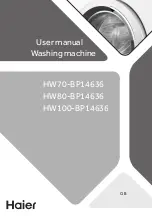
5
— — — — — — — — — — — — — — — — — — — — — — — — — — — — — — — — — — — — — — — — — — — — — — — — — — — —
GETTING READ
Y
CONTENTS
SEWING BASICS
U
T
IL
IT
Y
S
T
ITCHES
APPENDIX
INDEX
Bar tack stitching........................................................................................................................................... 100
Darning......................................................................................................................................................... 102
Eyelet Stitching ................................................................................................................104
Horizontal Stitching ........................................................................................................105
Decorative Stitching........................................................................................................107
Fagoting ........................................................................................................................................................ 108
Scallop stitching............................................................................................................................................ 109
Smocking ...................................................................................................................................................... 109
Shell tuck stitching ........................................................................................................................................ 110
Joining .......................................................................................................................................................... 111
Heirloom stitching ........................................................................................................................................ 112
Sewing the Various Built-In Decorative Patterns.............................................................115
Sewing beautiful patterns .............................................................................................................................. 115
Sewing patterns............................................................................................................................................. 115
Combining patterns....................................................................................................................................... 116
Repeat sewing patterns.................................................................................................................................. 117
Checking the selected pattern ....................................................................................................................... 118
Changing the pattern size .............................................................................................................................. 119
Changing the stitch density ........................................................................................................................... 120
Changing the pattern length .......................................................................................................................... 120
Shifting patterns ............................................................................................................................................ 121
Mirror imaging the pattern ............................................................................................................................ 122
Storing a pattern............................................................................................................................................ 123
Realigning the pattern ................................................................................................................................... 124
Designing a Pattern .........................................................................................................126
Drawing a sketch of the pattern..................................................................................................................... 126
Entering the pattern data ............................................................................................................................... 127
Examples of designs ...................................................................................................................................... 129
APPENDIX
131
Stitch Settings..................................................................................................................132
Utility stitches ............................................................................................................................................... 132
Other stitches................................................................................................................................................ 137
Maintenance....................................................................................................................140
Cleaning the machine surface ....................................................................................................................... 140
Cleaning the shuttle ...................................................................................................................................... 140
Troubleshooting ..............................................................................................................142
Error messages .............................................................................................................................................. 146
Nothing appears in the LCD.......................................................................................................................... 147
Easily adjusting the thread tension................................................................................................................. 147
Operation beep ............................................................................................................................................. 148
Cancelling the operation beep ...................................................................................................................... 148
Removing the upper cover ............................................................................................................................ 149
Index ................................................................................................................................ 150












































